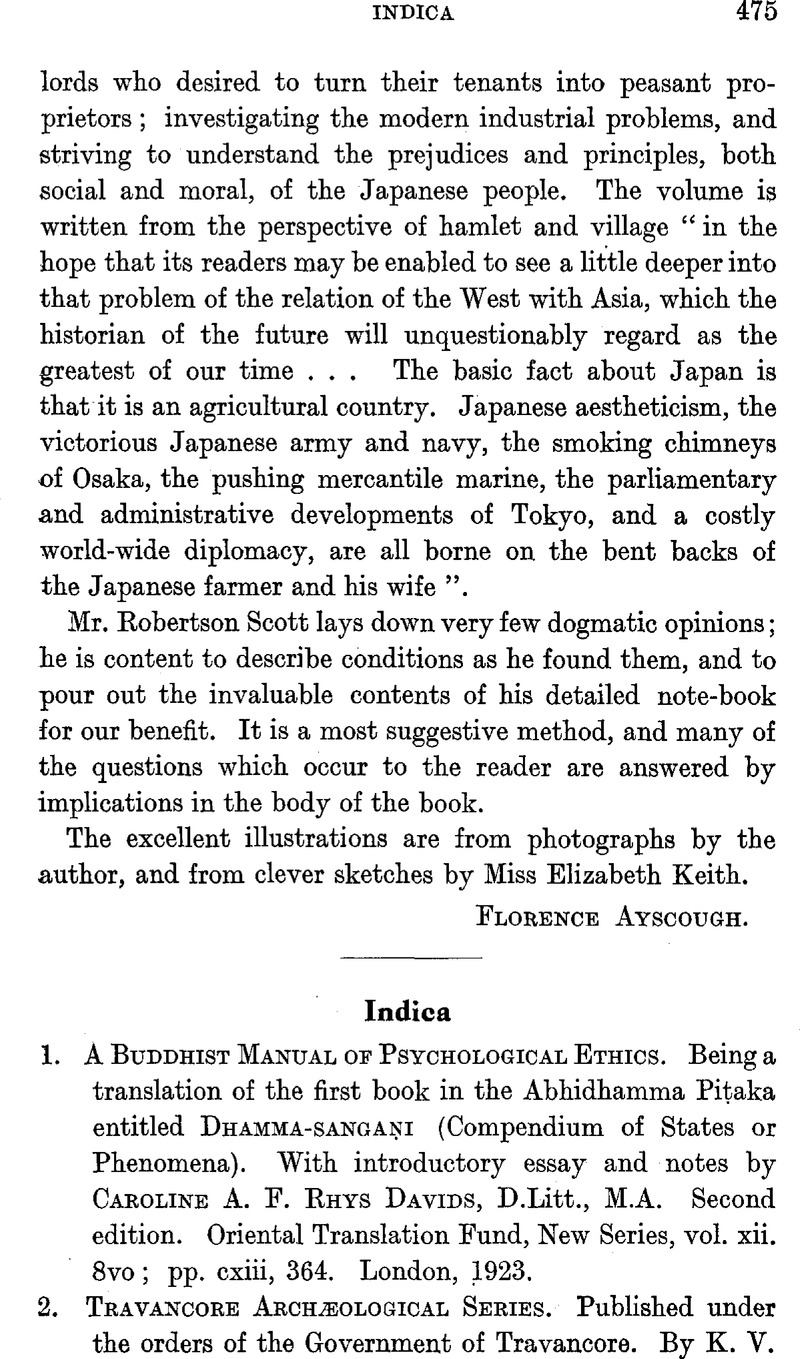No CrossRef data available.
Published online by Cambridge University Press: 15 March 2011

page 479 note 1 This passage does not imply a Buddhist standpoint in the Upaniṣad: it might apply equally to e.g. the scheme of tattvas in Śaiva or Vaiṣṇava theology, in which all the tattvas have at least a provisional reality. But the use of dharma is singular, and very like that of Buddhist doctrine.
page 480 note 1 Cf. La Vallée Poussin, Théorie des Douze Causes, p. 9 ff.
page 480 note 2 In Dialogues of the Buddha, ii, p . 209, the words tayo āsavā, kāmâsavo bhavâsavo avijjásavo are translated “Three intoxicants, to wit, the poisons of sensuality, future life and ignorance” : this expands the idea a little too much .